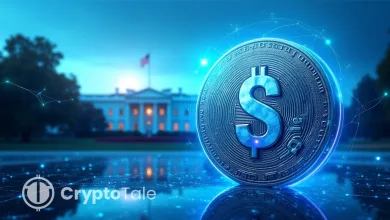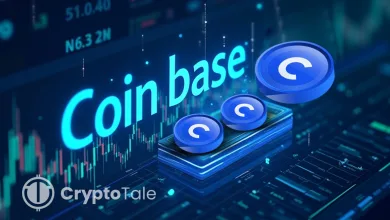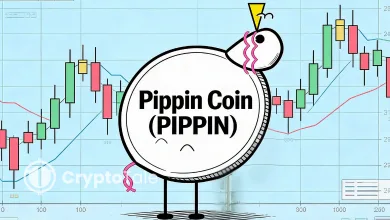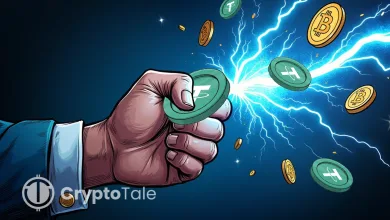JPMorgan and DBS Lead Push for Cross-Chain Tokenized Deposits
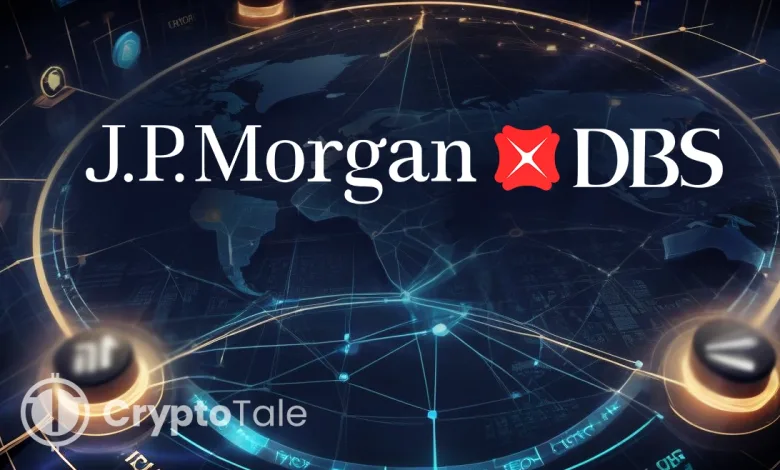
- JPMorgan and DBS team up to link tokenized deposits across private and public blockchains.
- The move connects Kinexys and DBS Token Services to allow regulated on-chain settlements.
- The collaboration aims to bridge traditional banking, stablecoins, and CBDCs.
JPMorgan and Singapore’s DBS Bank have begun developing a shared framework to let institutional clients move tokenized deposits across multiple blockchain networks. The collaboration brings together JPMorgan’s Kinexys digital payments system and DBS’s Token Services to enable direct cross-chain settlements.
Building Interoperable Banking Rails
JPMorgan and DBS are working to connect their current blockchain systems. Within their private systems, both already facilitate instant transfers; however, those networks are still isolated. The new framework would allow clients to send value seamlessly between the two institutions. This means users could move funds across blockchains without routing through traditional intermediaries.
According to the banks, the integration maintains the “singleness of money,” ensuring deposits retain regulated value even when transferred digitally. Naveen Mallela, Global Co-Head of Kinexys at JPMorgan, said the initiative shows how institutions can collaborate to extend the benefits of tokenized deposits while preserving regulatory safeguards.
The project is part of JPMorgan’s broader effort to expand blockchain-based finance. The bank recently issued a U.S. dollar deposit token on Coinbase’s Base network, a public layer-2 blockchain. That move demonstrated how regulated assets could operate within decentralized ecosystems.
The partnership with DBS builds on that concept by connecting a public blockchain to a private institutional network. In practice, a JPMorgan client could send tokenized U.S. dollar deposits from Base to a DBS client. The recipient could redeem those tokens or hold them within DBS’s system, completing a regulated, cross-border, on-chain transfer.
Shaping the Next Phase of Digital Money
The collaboration signals growing institutional momentum around programmable money. Additionally, it represents one of the most evident attempts to integrate blockchain settlement layers with banking infrastructure. Both banks see a future in which tokenized deposits serve as a link between central bank digital currencies (CBDCs) and stablecoins.
This would give financial institutions a new tool for real-time, cross-chain transactions without exposing clients to unregulated digital assets. Tokenized deposits, unlike stablecoins, are backed directly by funds held in regulated bank accounts. That distinction ensures compliance with monetary rules while enabling blockchain efficiency.
According to the Bank for International Settlements (BIS), approximately one-third of banks worldwide are testing tokenized deposit models. These projects share a common goal: improving payment efficiency and reducing friction in global transfers.
Related: Brazil Central Bank Unveils Crypto Rules to Curb Illicit Use
By linking the Kinexys network and DBS Token Services, the two institutions aim to demonstrate interoperability. They seek to show that it can exist between public and private blockchains. It also lays the foundation for broader collaboration among banks adopting similar systems.
The implications extend beyond retail payments. Cross-chain tokenized deposits could streamline corporate settlements, treasury management, and even cross-border trade finance. They also set the groundwork for future CBDC integration. This gives central banks a clearer path to connect digital currencies with commercial bank systems.
For JPMorgan and DBS, this development moves blockchain technology closer to the core of global finance. It replaces theoretical pilots with a real-world framework that merges digital assets and regulated money infrastructure.

